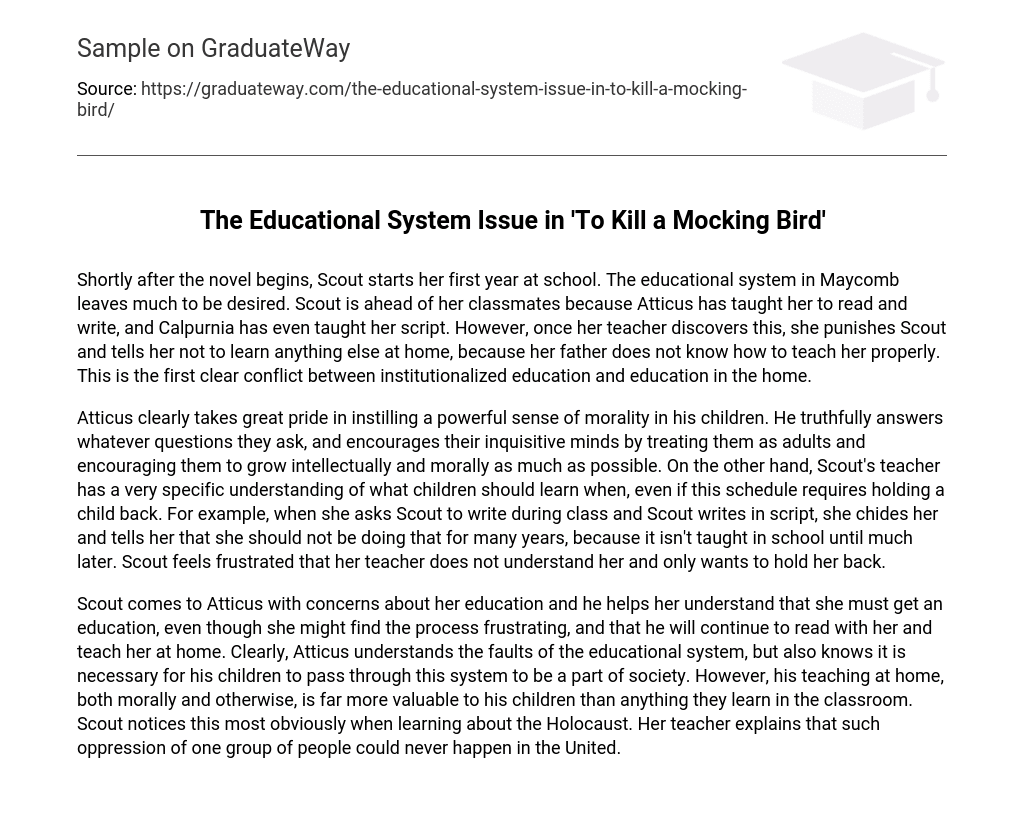Shortly after the novel begins, Scout starts her first year at school. The educational system in Maycomb leaves much to be desired. Scout is ahead of her classmates because Atticus has taught her to read and write, and Calpurnia has even taught her script. However, once her teacher discovers this, she punishes Scout and tells her not to learn anything else at home, because her father does not know how to teach her properly. This is the first clear conflict between institutionalized education and education in the home.
Atticus clearly takes great pride in instilling a powerful sense of morality in his children. He truthfully answers whatever questions they ask, and encourages their inquisitive minds by treating them as adults and encouraging them to grow intellectually and morally as much as possible. On the other hand, Scout’s teacher has a very specific understanding of what children should learn when, even if this schedule requires holding a child back. For example, when she asks Scout to write during class and Scout writes in script, she chides her and tells her that she should not be doing that for many years, because it isn’t taught in school until much later. Scout feels frustrated that her teacher does not understand her and only wants to hold her back.
Scout comes to Atticus with concerns about her education and he helps her understand that she must get an education, even though she might find the process frustrating, and that he will continue to read with her and teach her at home. Clearly, Atticus understands the faults of the educational system, but also knows it is necessary for his children to pass through this system to be a part of society. However, his teaching at home, both morally and otherwise, is far more valuable to his children than anything they learn in the classroom. Scout notices this most obviously when learning about the Holocaust. Her teacher explains that such oppression of one group of people could never happen in the United.





